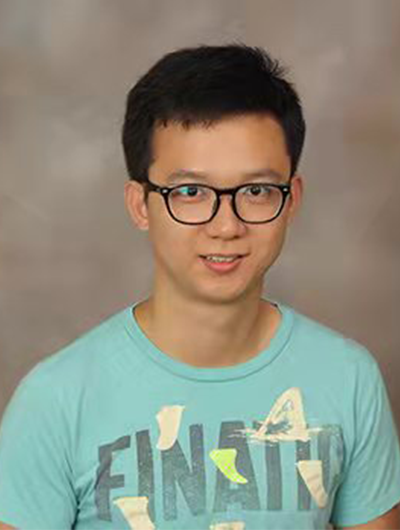
Junior Principal Investigator
zhangyang@szbl.ac.cn
Home page of research group:http://zhanglab.szbl.ac.cn/
2022 – Present The Institute of Molecular Physiology at Shenzhen Bay Laboratory Junior Principal Investigator
2020 – 2022 Biochemistry, Duke University Senior Research Associate
2015 – 2020 Biochemistry, Duke University Postdoc
2014 – 2015 Shenzhen Institutes of Advanced Technology, Chinese Academy of science Assistant Professor
2009– 2014 Biomedical Engineering, Huazhong University of Science and Technology Ph.D.
2005– 2009 Biomedical Engineering, Huazhong University of Science and Technology B.S.
Research Areas
The dynamic trans-bilayer movement of ions and phospholipids across cell membranes is essential for cell homeostasis and signaling. My long-term career goal is to establish a multi-disciplinary research lab to understand the ion and phospholipid membrane transport in health and disease. Ultimately, I hope to provide new therapeutic strategies to target these transport proteins for the treatment of related developmental disorders, blood coagulation disorders as well as viral infection.
Highlights
1. Understanding physiological roles of TMEM16 Ca2+-activated ion channels and lipid scramblase. a) Discovered a novel Cl- conductance in controlling motor learning. b) Discovered a new player in mediating cell-cell fusion. c) Discovered the calcium regulatory mechanism upstream of TMEM16-lipid scramblase.
2. Non-invasive techniques for cerebral neuro-glia-vasculature visualization and neurological disorder evaluation. a) Advanced optical imaging methods for visualization of vasculature, glia and neuronal circuits in cortex in vivo. b) Noninvasive monitoring system for neurological disorders.
Honors
• Gordon Research Conference Best Poster Presentation Award, 2022
• Duke Biochemistry Retreat Poster Award, 2022
• Layton Holladay Memorial Fund Award, 2019
• Burroughs Wellcome Fund CRTG Award, 2017
• Joy Cappel Young Investigator Award, 2016
Selected Publications
1. A.J. Lowry, P. Liang, M. Song, Y. Wan, Z. Pei, H. Yang,Y. Zhang(2024) TMEM16 and OSCA/TMEM63 proteins share a conserved potential to permeate ions and phospholipids eLife 13:RP96957 https://doi.org/10.7554/eLife.96957.3
2. P. Liang1,Y. Zhang1, Y.S. Wan, S. Ma, P. Dong, A.J. Lowry, S.J. Francis, S. Khandelwal, M. Delahunty, M.J. Telen, J.J. Strouse, G.M. Arepally, H. Yang, Deciphering and Disrupting PIEZO1-TMEM16F Interplay in Hereditary Xerocytosis, Blood 143(4):357-69 (2024)
3. Y. Zhang, P. Liang, L. Yang K. Shan, L. Feng, Y. Chen, W. Liedtke, C. B. Coyne, H. Yang, Functional coupling between TRPV4 channel and TMEM16F modulates human trophoblast fusion. eLife 11: e78840 (2022)
4. Y. Zhang, T. Le, R. Grabau, Z. Mohseni, H. Kim, D. R. Natale, L. Feng, H. Pan, H. Yang, TMEM16F phospholipid scramblase mediates trophoblast fusion and placental development. Science Advances 6, eaba0310, 2020
5. Y. Zhang, Z. Zhang, S. Xiao, J. Tien, S. Le, T. Le, L. Y. Jan, H. Yang, Inferior olivary TMEM16B mediates cerebellar motor learning, Neuron, 95:1103–1111, 2017
6. X. Yang#, Y. Zhang#, K. Zhao, Y. Zhao, Y. Liu, H. Gong, Q. Luo, and D. Zhu, Skull Optical Clearing Solution for Enhancing Ultrasonic and Photoacoustic Imaging., IEEE Transactions on Medical imaging, 35(8):1903-6, 2016
7. C. Liao, Y. Zhang, C. Fan, L. E. Herring, J. Liu, J. W. Locasale, G. Zurlo, L. Hu, J. M. Simon, T. S. Ptacek, O. Pugovics, E. Loza, H. Yang, C. M. Perou, and Q. Zhang, Identification of BBOX1 as a therapeutic target in triple-negative breast cancer, Cancer Discovery 10(11): 1706-1721, 2020
8. P. Dong, Y. Zhang, M. A. Mikati, J. Cui, H. Yang, Neuronal mechanism of a BK channelopathy in absence epilepsy and dyskinesia. PNAS 119 (12) e2200140119, 2022
9. Y. Zhang, H. Yang, A simple and robust fluorescent labeling method to quantify trophoblast fusion, Placenta, 77:16-18, 2019
10. Y. Zhang, C. Zhang, X. Zhong, D. Zhu,Quantitative evaluation of SOCS-induced optical clearing efficiency of skull, Quantitative Imaging in Medicine and Surgery, 5(1), 136-142, 2015
11. Y. Zhang, Y. Chen, Y. Yu, X. Xue, V. V. Tuchin, and D. Zhu, Visible and near-infrared spectroscopy for distinguishing malignant tumor tissue from benign tumor and normal breast tissues in vitro, Journal of Biomedical Optics 18(7), 077003, 2013
12. J. Wang#, Y. Zhang#, T. Xu, Q. Luo, and D. Zhu, An innovative transparent cranial window based on skull optical clearing, Laser Physics Letters 9(6), 469-473, 2012